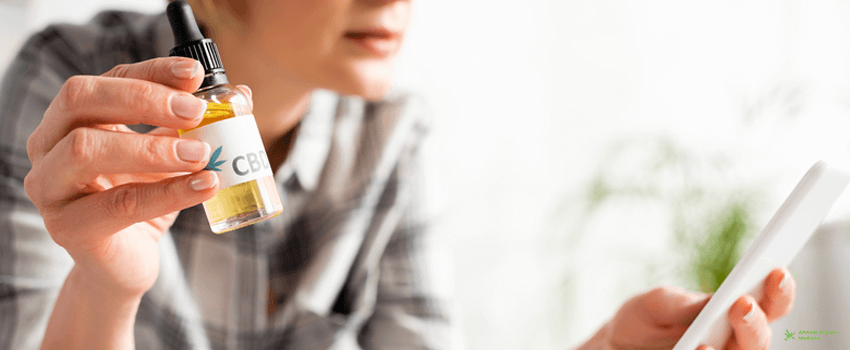You’ve probably heard about CBD if you’ve had stress, pain, or trouble sleeping. CBD has appeared everywhere in recent years—and for a good cause! While CBD research is still in its early phases, accumulating testimonies and anecdotal data suggest that CBD can be a valuable tool for addressing a wide range of health needs. Some people may see instant benefits. For some people, however, finding real success with a CBD program takes time, patience, and persistence. Perhaps you’re wondering if taking CBD every day is necessary. We’ve prepared a guide for you to look into.
CBD and The Body’s Response to Stress Daily
CBD interacts with the endocannabinoid system (ECS), which is in charge of maintaining homeostasis, or balance, throughout the body and is comprised of a complex network of cannabinoid receptors and endocannabinoids.
Endocannabinoid molecules circulate in our circulation, and cannabinoid receptors are found in almost every organ. The word “endo” signifies “internal or inside,” implying that endocannabinoids are cannabinoids that our bodies produce or create
Many factors influence the life cycle of endocannabinoids, including our physiological response to stress stimuli. The human body is built to handle short-term stress bursts, such as running away from a tiger and finding shelter in a storm. Our physiological stress response increases when such triggers are present. Once resolved, our bodies can rest and recover.
Our bodies are constantly being bombarded with micro-stressors in this day and age. Think: getting tired, responding to countless emails, sitting in traffic jams, managing our many roles, dealing with noise pollution, and living with discomfort.
Human biology has evolved faster than modern culture and the stressors that it brings along. Our bodies cannot distinguish between stressful events that happen every day and primitive survival struggles. This results in the same physiological response, regardless of the threat level. How long we have activated stress affects our bodies’ ability to recover.
You may notice a decrease in endocannabinoid tone when your stress response is constant. There is evidence that stress hormones like adrenaline and cortisol can deplete the levels of circulating neurotransmitters, which are vital for ECS function.
Remember that the ECS is responsible for maintaining homeostasis and regulates everything, from mood to sleep to hormone regulation and immune function. If it isn’t balanced, it can be challenging to regulate other systems, which, in turn, can lead to a variety of health problems.
Where CBD Comes In
We now have a better understanding of the relationship between overstressed systems and low levels of endocannabinoids. Now we can look at where phytocannabinoids can help!
CBD is a cannabinoid produced by hemp and cannabis. As indicated by the prefix “phyto,” these plant-based cannabinoids have strikingly similar molecular structures to our endocannabinoids. This suggests that they are functionally identical. The ability of phytocannabinoids to bind to the ECS and activate cannabinoid receptors is one way that they behave similarly to endocannabinoids.
However, that’s not all! Recent research has shown a fascinating relationship between CBD and the enzymes that break down endocannabinoids. It was found that CBD can bind to these enzymes and activate them for a brief period. This makes CBD a great compound to supplement the body with phytocannabinoids and allows our system to make its endocannabinoids. This results in a balanced endocannabinoid tone.
CBD Every Day: Is It Possible?
You must be wondering, “Can I take CBD every day?” Yes, you may use CBD daily, but only in moderation. CBD can be taken in excess. According to one study, frequent ingestion of large dosages of CBD at 1500 mg/day was well tolerated. This is far more than most individuals consume.
If you ingest too much CBD every day, you may encounter adverse effects. The proper dosage is determined by various factors, including your metabolism, weight, CBD product quality, and reason for taking the product. There hasn’t been enough study done in this field yet. As a result, it is usually suggested that you:
-
Begin with a tiny dose of CBD and gradually raise the amount.
-
Follow the recommended dose quantity as specified on the package.
-
Purchase high-quality CBD products from reputable manufacturers to ensure accurate labeling.
-
Check the Certificate of Analysis (COA) to ensure that the product’s contents are correct.
How Long Does CBD Stay In Your System?
Because of its first-pass effect, CBD has a low bioavailability. It is metabolized by enzymes in the liver and has an approximate half-life of about 1-2 days. Some people may find that CBD doesn’t last for more than 12 hours. Many factors depend on metabolic rate.
The Effects of Daily CBD Use
What happens if you consume CBD on a daily basis? According to anecdotal evidence, the favorable impacts of everyday CBD consumption include feeling calmer, having better sleep, and experiencing pain relief. Much more study is required to back up these statements. Because the half-life of CBD is only 1-2 days, consuming CBD every day will keep the CBD level in your system stable. The objective is to identify and sustain the ideal CBD level for your body.
It is also crucial to recognize that CBD’s full effects may take several weeks to kick in if you are just starting to use it. A daily dose ensures that you reap the maximum advantages of CBD.
Keep in mind that you may also encounter unpleasant side effects if you consume too much CBD. They are as follows:
-
Diarrhea
-
Fatigue
-
Drowsiness
-
Appetite Suppression
-
Mouth Dryness
Choosing When to Take CBD
A frequently asked question is, “When should I take CBD?” Much depends on your CBD product and why you’re taking CBD. People who use CBD to boost energy, for example, may take it in the morning and then again later in the day to maintain their energy level. If you’re using CBD for sleep, you should take it an hour before bedtime every night.
Experimenting With Your CBD Intake Carefully
There is no easy answer to how frequently you should take CBD. The product label will tell you the ideal dose quantity per user and the number of suggested intakes per day.
If you’re wondering about how to use CBD and the minimum dosage, do not worry. As a first-time user, you should start with a modest amount of CBD to see how it affects your body. In fact, during the first week, you can start with one or two drops of CBD oil or half a CBD gummy and gradually increase the dosage. It’s a good idea to keep a notebook for a while because it’s easy to forget what happens daily.
Although the FDA does not regulate CBD, it is regarded as highly safe by organizations such as the World Health Organization (WHO). As with any substance, take caution and be an informed customer.
Key Takeaway
Most people believe that CBD helps them accomplish their long-term health objectives when taken every day and with specific tweaks to their dose schedule. We may not always be able to avoid the myriad micro-stressors that come with our hectic lifestyles, but we can take care of ourselves by using CBD to help us manage day-to-day stress. The purpose of taking CBD every day is to optimize the strength and function of the body’s ECS, but your health goals will decide when dosages are most helpful.
Use CBD from Altitude Organic Cannabis
Don’t be afraid of trying new things along your CBD journey! There are no one-size-fits-all CBD doses. Everybody is unique. The delivery method and the dose of CBD can have an impact on how long CBD lasts in your body. So, it is important to be consistent and thoughtful about your CBD intake.
If you’re looking to buy CBD, why not get it from the best? Altitude Organic Cannabis has a dispensary in Dillon, CO, that supplies top-shelf products, from CDB edibles to oil. Don’t hesitate to reach out to us to learn more about the goods we offer. Our CBD-infused products are sure to make your CBD journey worthwhile!


